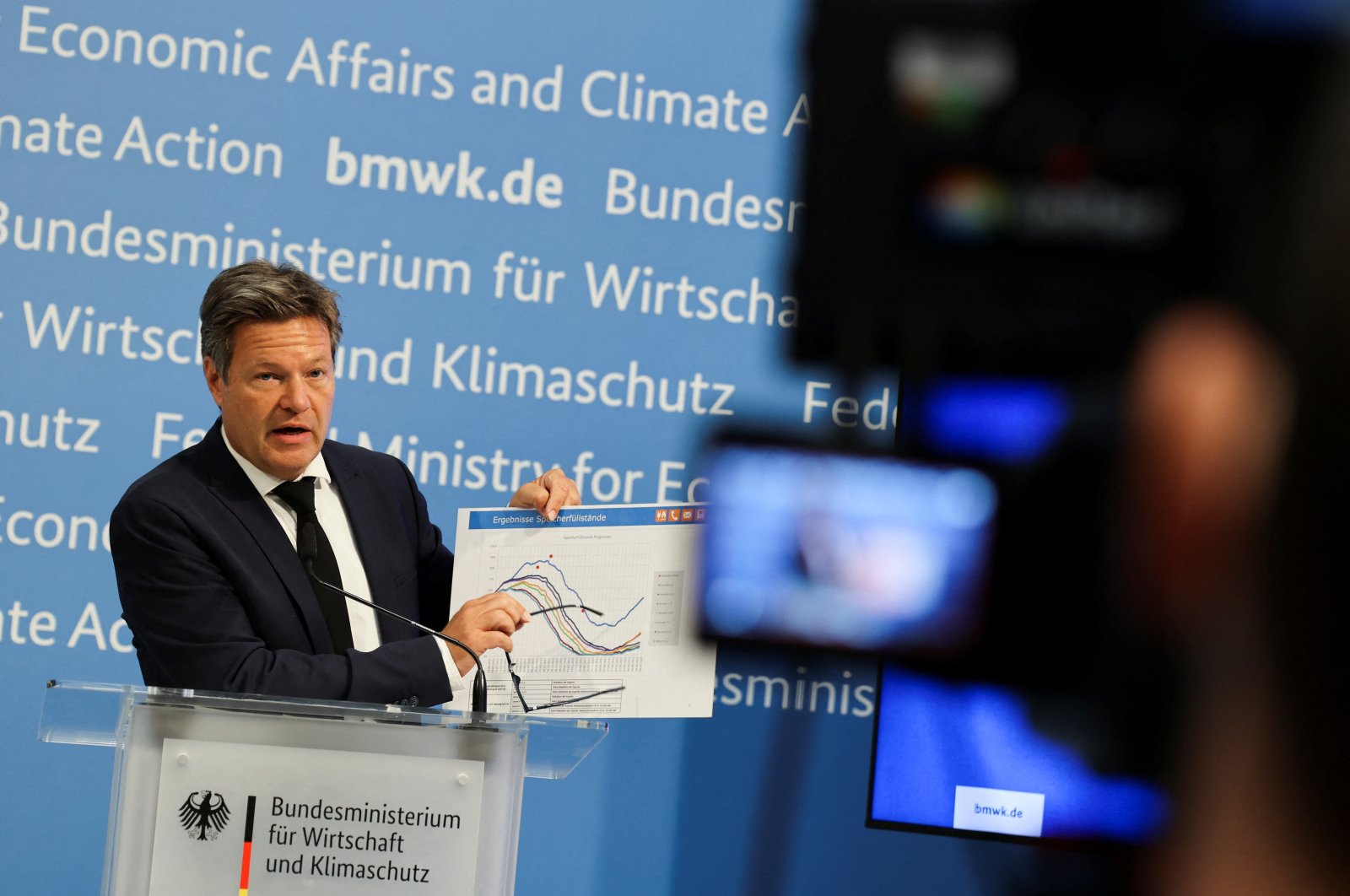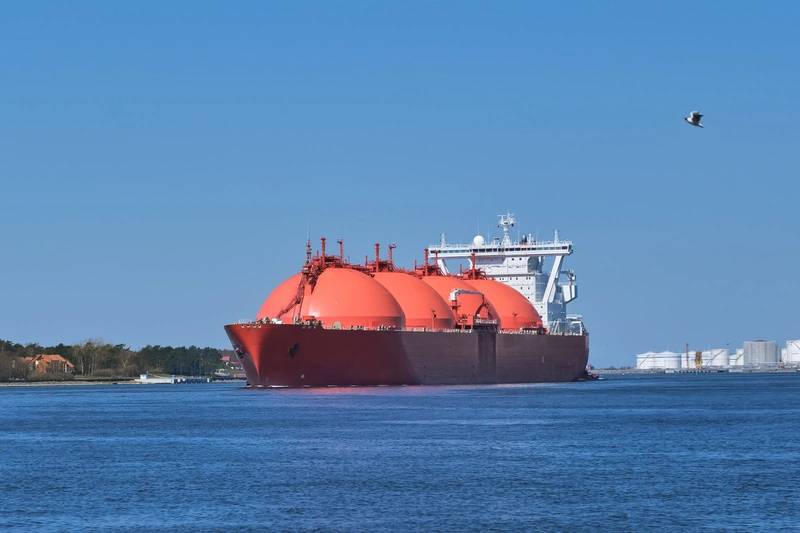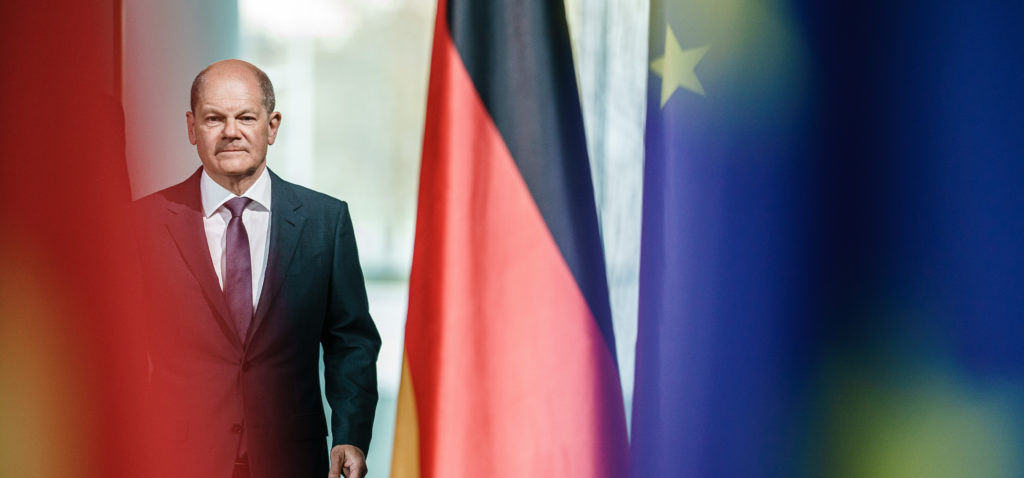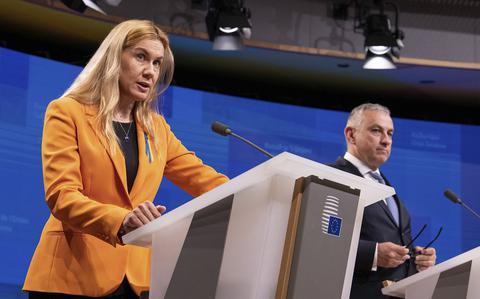Germany on Thursday put its emergency gas plan on “alert” in response to falling Russian supplies, but didn’t allow utilities to pass on rising energy costs to customers in Europe’s largest economy.
The move is the latest escalation in a standoff between Europe and Moscow since Russia’s invasion of Ukraine, which has exposed the bloc’s reliance on Russian gas supplies and sparked a frantic search for alternative energy sources.
The decision is largely symbolic, signaling businesses and households that painful cuts are ahead. But it marks a major shift for Germany, which has had strong energy ties with Moscow dating back to the Cold War.
Lower gas flows sparked warnings this week that Germany could fall into recession if Russian supplies were halted entirely. S&P Global’s flash purchasing managers’ index (PMI) on Thursday showed the economy losing momentum in the second quarter.
“Let us not delude ourselves: cutting gas supplies is an economic attack by (Russian President Vladimir) Putin on us,” Economy Minister Robert Habeck said in a statement, adding that Germans need to cut consumption.
Gas rationing will hopefully be avoided, but cannot be ruled out, said Habeck and warned:
“From now on, gas is a scarce commodity in Germany … We are therefore now obliged to reduce gas consumption, now in the summer.”
Russia has denied the gas supply cuts were premeditated, with state supplier Gazprom blaming a delay in returning serviced equipment caused by Western sanctions. The Kremlin said on Thursday that Russia remains a reliable energy supplier and is strictly fulfilling “all its commitments” to Europe.
As part of its Phase 2 plan, Berlin will provide a €15 billion ($15.76 billion) credit line to fill gas storage facilities and launch a gas auction model this summer to encourage industrial users to conserve gas .
The government activates the second “alert level” of a three-stage contingency plan when it sees a high risk of long-term supply shortages. It includes a clause that allows utilities to immediately pass on high prices to industry and households, thereby helping to contain demand.
Habeck said Germany isn’t at that point yet, but the clause could be triggered if prices continue to rise due to tight supply and deepening losses at energy companies.
“Every day, every week you make a minus. And if this minus becomes so great that the companies can no longer stand it and they collapse, the whole market threatens to collapse at some point – a Lehman Brothers effect in the energy system.”
A transition to the next phase has been the subject of speculation since Gazprom cut inflows via the Nord Stream 1 pipeline through the Baltic Sea to just 40% of capacity last week.
With supplies from key supplier Russia dwindling, Germany has been in phase 1 of its contingency plan since late March, which includes tighter monitoring of daily flows and a focus on filling gas storage facilities.
“The declaration of the alert level does not immediately change the basic status quo,” said the German energy supplier E.ON. However, it is important that the government prepare for a significant drop in imports and take steps to stabilize markets and gas supplies, said a statement emailed to Reuters.
risk of complete disruption
In the second phase, the market is still functional without the need for state intervention, which would occur in the last emergency phase.
“The recent reduction in flows into Germany via the Nord Stream 1 pipeline, if maintained at this level, will result in gas shortages in the coming winter,” said Ole Hansen, head of commodity strategy at Saxo Bank.
Dutch wholesale gas prices, the European benchmark, rose by as much as 8% on Thursday.
Russia could cut Europe off gas completely to boost its political clout, the head of the International Energy Agency (IEA) said on Wednesday, adding that Europe must prepare now.
Russian gas flows to Europe via Nord Stream 1 and through Ukraine were stable on Thursday, while backflows in the Yamal pipeline increased, operator data showed.
Several European countries have outlined measures to withstand a supply shortage and stave off winter energy shortages and a surge in inflation that could test the continent’s resolve to maintain sanctions on Russia.
The supply cuts have also prompted German companies to consider painful production cuts and resort to polluting forms of energy previously thought unthinkable as they brace themselves for the prospect of running out of Russian gas.
The European Union on Wednesday signaled it will temporarily turn to coal to ease energy shortages, calling Moscow’s gas supply cuts a “rogue”.
The bloc’s climate policy chief, Frans Timmermans, said Thursday that 10 of the EU’s 27 member countries have issued an “early warning” on gas supplies — the first and least severe of three levels of crisis identified in EU energy security rules.
“The risk of a full gas disruption is now more real than ever,” he said.




